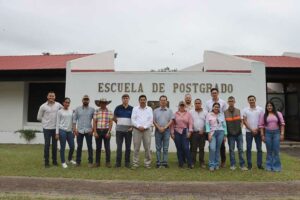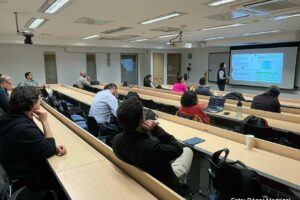CATIE and Momostenango join efforts to strengthen food and nutritional security, prioritizing children and adolescents
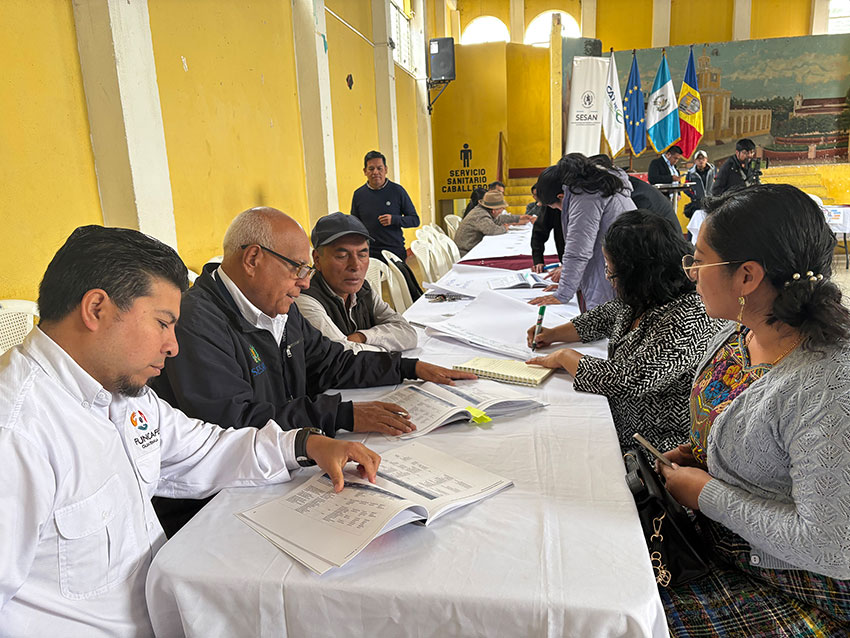
- The Municipal Food and Nutritional Security Policy with an Emphasis on the Protection of Children and Adolescents 2024-2034 was updated to improve governance and promote multisectoral work with local stakeholders.
During the development of the second phase of the Nutrition Information Platform (PiNN) project, CATIE (Tropical Agricultural Research and Higher Education Center) provided technical support to update the Municipal Food and Nutritional Security Policy with an Emphasis on the Protection of Children and Adolescents, , for a 10-year period (2024-2034), in the municipality of Momostenango, providing support for access to sectoral data using the Food and Nutritional Security Information System (SIMSAN), which was created during the first phase of the project to generate information and reflect the existing need.
To update the policy, an event was held, chaired by Albino Cuyuch Chaj, Mayor of Momostenango, part of his council and organized by the Municipal Directorate of Food and Nutritional Security (DIMUSAN), with the support of members of the Municipal Commission for Food and Nutritional Security with emphasis on the protection of Children and Adolescents (COMUSANNA).
The purpose of the event was to formalize the existing commitment to strengthen actions in the fight against malnutrition. In the presence of various sectors, a call was made for intersectoral collaboration, promoting joint work to optimize efforts, align common objectives and enhance dual purpose actions to improve efficiency in processes and results.
With the support of Rony Morales, SESAN's municipal monitor, working groups were formed to develop the programmatic matrix included in the update of the policy document, analyzing its link with the current political context.
They also discussed the current advances and challenges faced by the municipality's population.
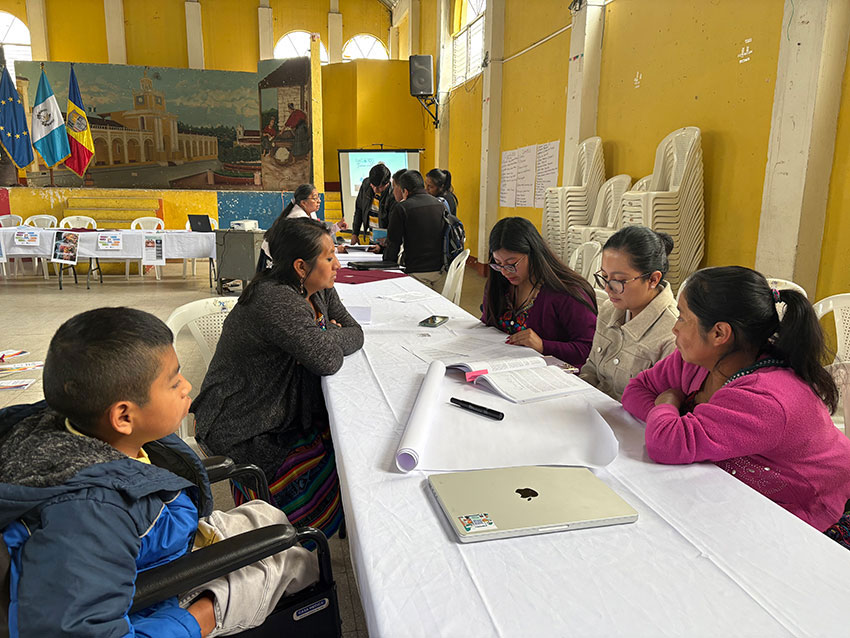
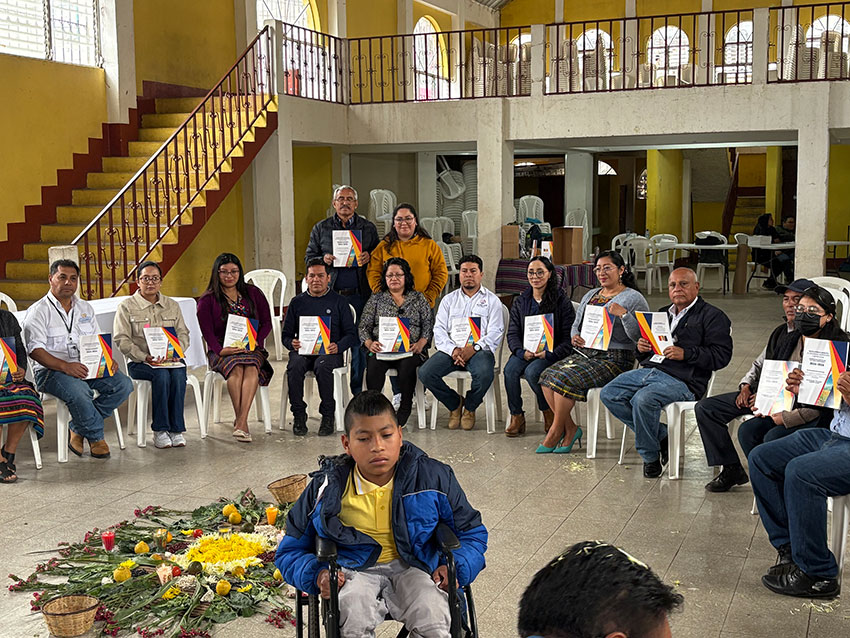
The event was attended by officials from different government institutions such as the Ministry of Agriculture, Livestock and Food (MAGA), the Presidential Secretariat for Food and Nutritional Security (SESAN), the Ministry of Education (MINEDUC), the Ministry of Public Health and Social Assistance (MSPAS), the Ministry of Social Development of Guatemala (MIDES), community leaders, representatives of international cooperation projects and representatives of civil society.
Among the topics addressed were the links of the policy and its response to each of the 4 pillars of FNS, governance issues, social protection, social behavior change, among others; as well as its close relationship with the policy and how it has been strengthened through the Municipal Information System for Food and Nutritional Security (SIMSAN).
Katherine Anahí Son Ajanel, director of the Municipal Directorate of Food and Nutritional Security (DIMUSAN), mentioned that malnutrition problems have persisted for several decades, and that it is not only a health issue but a development crisis. He reflects that a child who does not receive adequate nutrients in the first years of life will have more difficulties in school, fewer opportunities in life and lower income in adulthood; in addition to fewer opportunities to be a full person surrounded by wellbeing.
Gabriela Ogaldes, Nutrition specialist, and Lorena López, policy specialist, both from the PiNN project, highlighted the importance of implementing the municipal public policy from a coordinated and integrated multisectoral action.
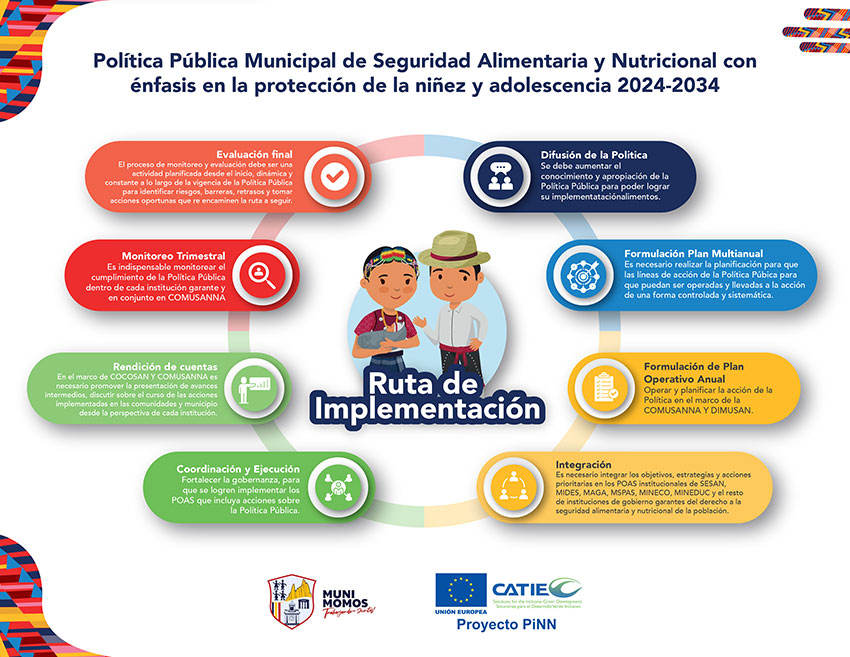
The municipal mayor indicated that the presentation of the municipal policy made it possible to identify common challenges in a constantly changing political context, and stressed the importance of each public, private and civil society institution contributing to the implementation of the policy so that it transcends beyond a document and becomes an engine for change, improving food and nutritional security for the indigenous and rural population, adolescents, children under 5 years of age, women of childbearing age, pregnant women and families living in poverty and extreme poverty. “We need each ministry, secretary, community and families to do their part, with responsibility and commitment,” he said.
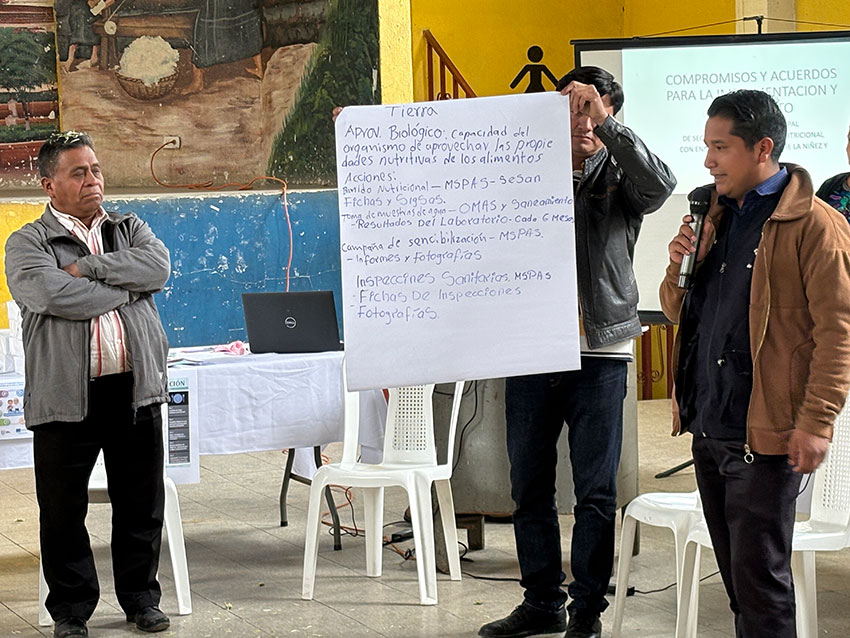
More information/written by:
Gabriela Ogaldes
Nutrition Specialist
PiNN Project
CATIE Guatemala
Gabriela.ogaldes@catie.ac.cr

